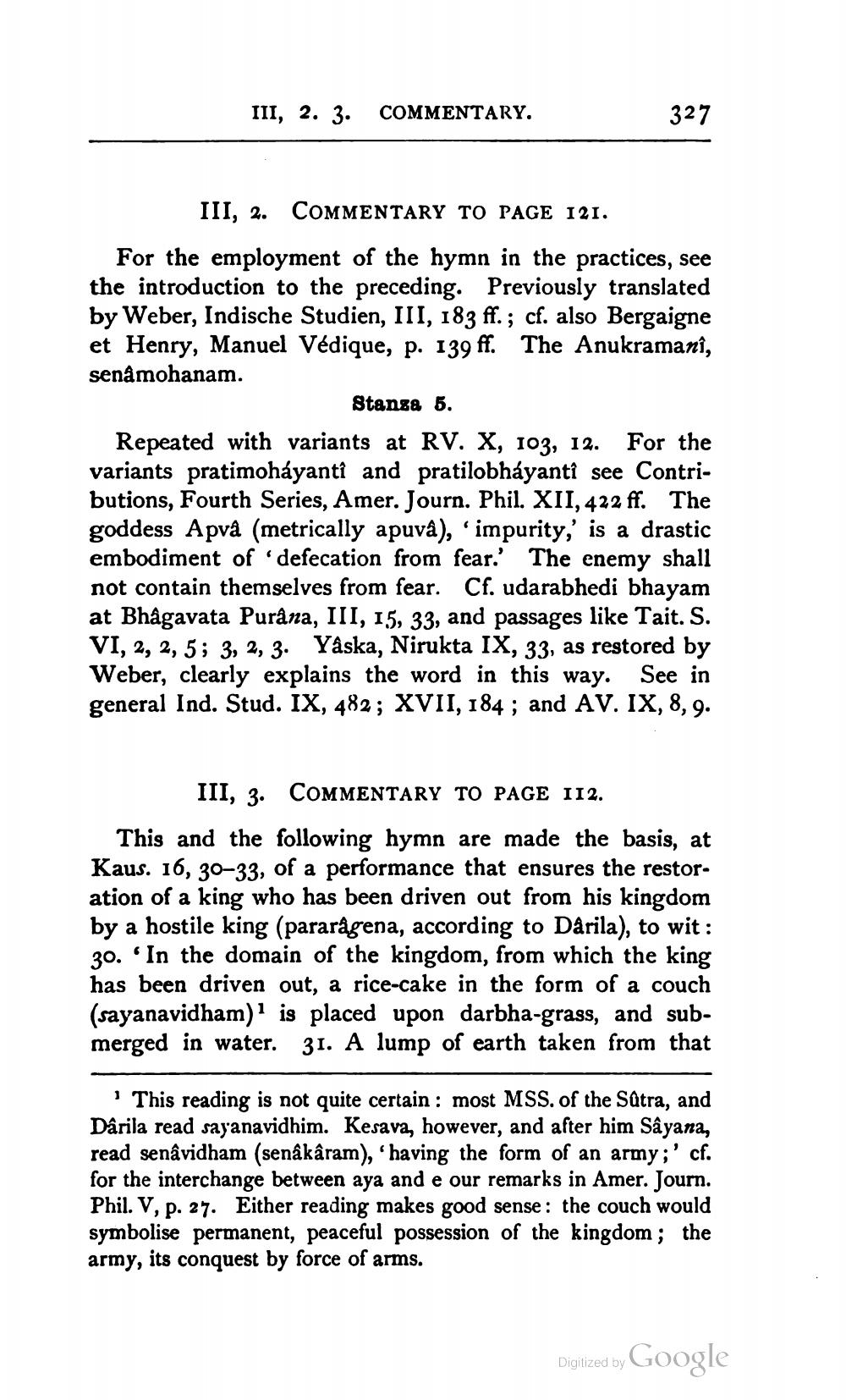________________
III, 2. 3. COMMENTARY.
327
III, 2. COMMENTARY TO PAGE 121. For the employment of the hymn in the practices, see the introduction to the preceding. Previously translated by Weber, Indische Studien, III, 183 ff.; cf. also Bergaigne et Henry, Manuel Védique, p. 139 ff. The Anukramani, senamohanam.
Stansa 5. Repeated with variants at RV. X, 103, 12. For the variants pratimoháyanti and pratilobháyanti see Contributions, Fourth Series, Amer. Journ. Phil. XII, 422 ff. The goddess Apvá (metrically apuvâ), 'impurity,' is a drastic embodiment of 'defecation from fear.' The enemy shall not contain themselves from fear. Cf. udarabhedi bhayam at Bhagavata Purana, III, 15, 33, and passages like Tait. S. VI, 2, 2, 5; 3, 2, 3. Yaska, Nirukta IX, 33, as restored by Weber, clearly explains the word in this way. See in general Ind. Stud. IX, 482; XVII, 184 ; and AV. IX, 8, 9.
III, 3. COMMENTARY TO PAGE 112. This and the following hymn are made the basis, at Kaus. 16, 30–33, of a performance that ensures the restoration of a king who has been driven out from his kingdom by a hostile king (pararågena, according to Darila), to wit: 30. 'In the domain of the kingdom, from which the king has been driven out, a rice-cake in the form of a couch (sayanavidham) is placed upon darbha-grass, and submerged in water. 31. A lump of earth taken from that
This reading is not quite certain : most MSS. of the Satra, and Darila read sayanavidhim. Kesava, however, and after him Sâyana, read senávidham (senâkâram), 'having the form of an army;' cf. for the interchange between aya and e our remarks in Amer. Journ. Phil. V, p. 27. Either reading makes good sense: the couch would symbolise permanent, peaceful possession of the kingdom; the army, its conquest by force of arms.
Digized by Google
Digitized by




